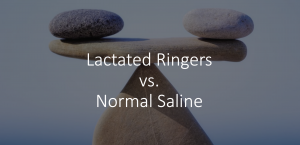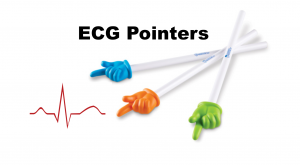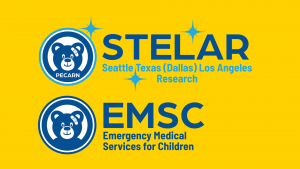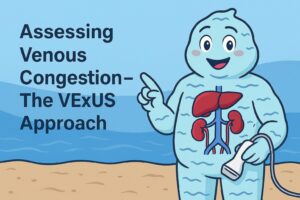Originally published at R.E.B.E.L. EM on December 1, 2016. Reposted with permission.
Follow Dr. Salim R. Rezaie at @srrezaie

Background: Anyone who works in the Emergency Department has seen patients brought in by EMS or sent from the clinic with a chief complaint of “high blood sugar.” Now, we are not talking about patients with diabetic ketoacidosis, but just simple hyperglycemia. This is a common complaint with no real consensus on optimal blood glucose levels before safe discharge.
What They Did:
- Single Center, Retrospective, Cohort Chart Review
- Patients received care determined by the MD working (No actual intervention or protocolized care was followed)
Outcomes:
- Determine if there is an association between discharge glucose and 7-day adverse outcomes:
- Diabetic Ketoacidosis (DKA)
- Hyperosmolar Hyperglycemic State
- Repeat ED visit for Hyperglycemia
- Hospitalization for Any Reason
Inclusion:
- ≥18 years of age
- Glucose Level ≥400 mg/dL at any point during visit
Exclusion:
- Admission to the Hospital
- Type 1 DM
- Chief complaint of Hypoglycemia
Results:
- 566 Hyperglycemia ED Encounters Included
- 7 Day Adverse Outcomes:
- DKA: 2 patients (0.4%)
- Hyperosmolar Hyperglycemic State: 0 patients (0%)
- Return Visit for Hyperglycemia: 62 patients (13%)
- Hospitalization: 36 patients (7%)
- Death: 0 patients (0%)
- Mean Glucose at Discharge:
- With 7-Day Adverse Outcome: 317 mg/dL
- Without 7-Day Adverse Outcome: 336 mg/dL
- Seven-Day ED Visit for Hyperglycemia
- Discharge Glucose Level >350 mg/dL: OR 0.69 (95% CI: 0.26 – 1.82)
- Intravenous Fluids Received: OR 0.92 (95% CI 0.65 – 1.30)
- Insulin Received: OR 0.99 (0.94 – 04)
Strengths:
- Outcome measures were patient-oriented
- Countywide ambulance records were reviewed to look for patient visits to other EDs
- Only 71 patients (13%) lost to follow up
- Interobserver agreement in this study was excellent
Limitations:
- Abstractors not blinded to study outcomes, but data for the outcome of interest were collected before other data points
- Retrospective study design causes some limitations such as incomplete values in the charts
- Care wasn’t standardized. Why some patients got certain treatments prior to discharge was not clear from this trial
Discussion:
- It is important to remember that the assumed rates of repeat ED visits for hyperglycemia and hospitalizations have no previous data.
- This is the first investigation describing ED treatments and 7-day outcomes for patients with elevated blood glucose levels, not in DKA.
- Treatment of hyperglycemia is not without risk. 9 patients (2%) developed iatrogenic hypoglycemia
Author Conclusion: “ED discharge glucose in patients with moderate to severe hyperglycemia was not associated with 7-day outcomes of repeat ED visit for hyperglycemia or hospitalization. Attaining a specific glucose goal before discharge in patients with hyperglycemia may be less important than traditionally thought.”
Clinical Take Home Point: A more appropriate approach to simple hyperglycemia, may be ensuring appropriate outpatient follow up for long-term glycemic control, just as we currently do for asymptomatic hypertension, instead of reaching a “safe” glucose threshold before discharge.
References:
- Driver BE et al. Discharge Glucose is Not Associated With Short-Term Adverse Outcomes in Emergency Department Patients With Moderate to Severe Hyperglycemia. Ann Emerg Med 2016; S0196 – 0644 (16): 30162 – 7. PMID: 27353284
For More Thoughts on This Topic Checkout:
- Matt Rogers at CORE EM: Relevance of Discharge Glucose Levels and Adverse Events
Post Peer Reviewed By: Anand Swaminathan (Twitter: @EMSwami)









1 thought on “R.E.B.E.L. EM – Mythbuster: Glucose Levels Must be Below a “Safe” Threshold Before Discharge”
Pingback: Glucose Levels Must be Below a “Safe” Threshold Before Discharge – Verpleegkundig specialisten SEH